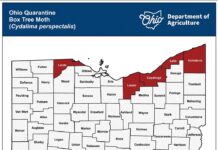Compensation of farm employees is a critical component of agriculture today. Farm employers must provide adequate levels of compensation if they expect to attract and retain quality employees while also maintaining a profitable farm business.
Surveys
As Extension professionals we are often consulted by farm owners about employee compensation and what they should expect to pay their employees. To find answers to questions related to employee compensation Barry Ward, leader, Production Business Management, for Ohio State University Extension, and I conducted a mailed survey of farm employers across Ohio.
Surveys were returned and summarized for 171 farm employees. Data was collected for each employee on education, years of experience, type of general farm duties, days per week worked, hours per week worked, time off, cash wages, benefits and bonuses.
The data was summarized by gross sales and type of farm.
Outcome
Survey results showed that the average value of cash wages paid to full-time employees was $28,265 per year. The average value of benefits was $5,960 per year. Adding these two figures together amounts to a total compensation of $34,225 per year for full-time employees.
Full-time employees averaged 11.9 years of experience and 9.4 years of tenure at their present workplace. Full-time workers averaged 2,374 hours worked per year.
According to this study, the average wage for full-time employees was $11.91 per hour and total compensation was $14.42 per hour for full-time employees.
Part-time employees averaged $9.22 per hour of cash wages with benefits averaging $590 per year. Part-time employees averaged 9.5 years of experience and 5.4 years of tenure at their present workplace.
Majority
The distribution of wages revealed that the largest majority (55.5 percent) of farm employees earn between $20,001 and $40,000 per year.
Health insurance was provided to some employees in some form. Of the employees represented in this study, 40 percent received some form of insurance coverage. Thirty-four percent of the full-time employees received single person health coverage while 11 percent received family health coverage.
For those receiving the benefit the average value was $4,653 per employee per year. The average value for all full-time employees in this study was only $1,566 per person per year because a large number (60 percent in this study) received no insurance.
Housing was a benefit some employees received. In this study 29 percent of the full-time employees received housing as part of their compensation package and averaged $6,933 per year. The average for all employees was $2,008 per year.
Other benefits
In addition to housing, some employees were compensated with paid utilities. The value of this compensation for full-time employees was $1,992 per year and only $382 per year for part-time employees. Other benefits provided to employees included bonuses (43 percent received), and use of machinery and equipment which was received by 25 percent.
Other benefits are listed in the Table 3.
It is clear from these survey results that farm owners must pay more than the minimum to attract and retain quality employees. Employers are encouraged to help employees see the value of benefits provided and how these contribute to the base salary.
Considerations
Wages are only one part of employee management in agriculture today. Farm employers will continue to be challenged by other farms and other businesses to retain quality employees. Maintaining acceptable wage and benefit packages will be a critical component of human resource management.













I work at a small dairy milk about 120cows. Only one employee .I do everything, milk feed mix feed etc. I want to know if lm getingt paidcorrectly. I make 360.00 per week.thats7 days awek.e
Tim:
It’s difficult to answer this question because there are a number of variables involved. Some of these include:
* Length of employment at the farm
* Prior experience
* Job performance
* Number of hours worked per week
* Cash available to the farm to pay hired labor
Are there other “non-cash” benefits you receive? Examples might include:
* Food
* Fuel
* Housing
* Meals
* Uniforms
* Insurance
It’s difficult to take the numbers from this survey and apply them to a specific farm situation because of the wide array of jobs that were reported by farm employers. I would suggest you talk with your employer about your present wage and what could be done to increase it, if that is what you desire. Because of tight margins it is often difficult for dairy farms, especially smaller ones, to find extra cash, but it may be worth your time to at least approach the subject with your employer.
Please let me know if you have other questions.
Chris Zoller